Any game where you can make galaxy-conquering peepee monsters is a good game.
And that title really isn't exaggerating. Spore is nothing short of a life simulation god game that, in a complete playthrough, charts the development of a player created species across billions of years. The game begins with the evolution of literal zooplankton on your planet and "ends" with the establishment of a galactic spacefaring empire stretching across the Milky Way. Sure, it didn't live up to its incredible hype in the eyes of many players. Sure, the game itself is fundamentally just a collection of mini games tied together by the editor system. Sure, it more or less led to the end of Maxis as an independent entity that made anything besides Sims expansion packs 
Even so, you can't deny the sheer ambition behind it all 
"The first time I talked to [Will Wright] he said he wanted this to be a game about Drake's equation. The improbability of our universe. He wanted players to go through all these deep failures so they'd appreciate how incredible it is that we are here. He came off that quickly though, but it was clear how massive he wanted it to be early on."
— Lead Designer Chris Trottier
Spore was intended to be the ultimate simulation game and the culmination of creator Will Wright's long career in the genre. Originally conceived as "SimEverything" back in the 90's, Spore was meant to be Wright's dream game and was funded with high hopes from EA. After all, Wright's previous game The Sims had become the highest selling computer game of all time by then  The game was also imagined as a groundbreaking step in the fields of user generated content and procedural generation, the former to allow potentially infinite replayability and the latter to make sure all that player creativity could actually function in the game.
The game was also imagined as a groundbreaking step in the fields of user generated content and procedural generation, the former to allow potentially infinite replayability and the latter to make sure all that player creativity could actually function in the game.
I'll try to impart the game's sense of scale upon rDrama in the next section.
So what is Spore? 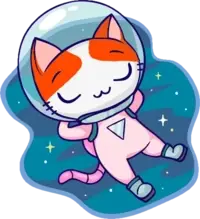
Being able to share your creations by sharing the PNG was pretty nifty though.
As a game Spore is divided into five stages each with its own style of gameplay and editors. A normal long game will go through the five stages in order, but you can also choose any stage independently and either go from there or not. The editors are used to create, well, just about everything you'll end up seeing in the game. The only things you won't be making are plants and other cells (and these actually exist in the code and can still be used to some extent) The editors can also be accessed from the main menu if you just feel like creating something.
All user created content is further shared through the Sporepedia. It both categorizes and allows you to browse anything made by other players while also auto-downloading user creations in the background as long as you remain connected to the internet.
Stages
Each of the five stages is like a microcosm of a distinct game genre. Cell stage is like those games where you play as a fish and eat smaller fish while avoiding bigger ones 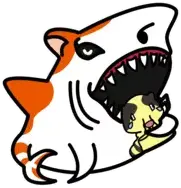 Creature stage is like a simple rpg
Creature stage is like a simple rpg 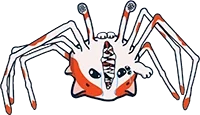 Tribal stage has rts elements
Tribal stage has rts elements 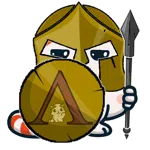 Civ stage is not unlike the Civilization games
Civ stage is not unlike the Civilization games 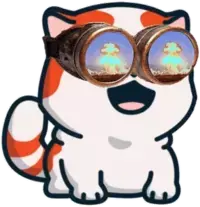 Finally space stage is the god game where you can travel across the entire Galaxy
Finally space stage is the god game where you can travel across the entire Galaxy 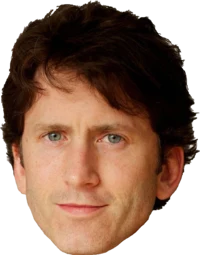 What ties these activities together is the editor system and the evolutionary line you yourself create and develop. In a long playthrough the game will keep track of how you finish each stage and assign your spacefaring empire an archetype.
What ties these activities together is the editor system and the evolutionary line you yourself create and develop. In a long playthrough the game will keep track of how you finish each stage and assign your spacefaring empire an archetype.
The Cell game is meant to be an introduction to the game of Spore and to life itself… We wanted to give the player a familiar game setting — 2D, 360-degree scroller — in which to introduce the basic concepts of Spore gameplay, most notably the process of zooming up in scale and using the creators.
— Will Wright
Cell
The first and simplest stage, though funnily it's by far the longest in-universe. This is a top down arcadey game where you make your little guy swim around and eat food without getting eaten. The game starts with your premade "cell" emerging from a comet in a simplified depiction of the panspermia theory. From there you focus on eating meat or plants or both while gaining dna points that allow you to add more complex parts to your evolutionary line. As things progress your guy will go from plankton 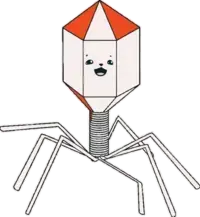 to fish
to fish  sized and the stage ends with migration to life on land.
sized and the stage ends with migration to life on land.
Spore was originally going to start the player off with an atomic stage in which you would put different molecules together to create self-replicating amino acids and other such organic molecules. It would have played kinda like Tetris. It was cut because the devs thought it was "too small in scale and too hard to emphasize with". In general many of the more "geeky" ideas from early Spore were cut in favor of making the game more cute and easier for the average player to connect to. This also explains why the cells look more like critters than amoebas. Granted, you do eventually become as big as an animal.
There was also going to be an "aquatic" stage in which the player controlled a larger fish creature before living on land. There were even early ideas to let the player stay in water and potentially build entire civilizations in the ocean.
The idea was cut because the devs didn't like the idea of going from three dimensional navigation underwater to two dimensional navigation on terrain. A major idea for Spore was to have each stage be more complex than the last, and it was felt the aquatic stage sort of messed that up.
Cell stage is very linear and since you meet the same Maxis made cells every playthrough there isn't anything new to see or do beyond adding fishy parts to your colored blob  The following stage increases user generated content a million fold.
The following stage increases user generated content a million fold.
Early in development it became obvious to me that the creature game was going to be the star of the show in many ways — it integrates the strongest creator, and it lets you get close to your creations as well as have the opportunity to meet an endless stream of other player's creations up close and personal.
— Designer Alex Hutchinson
Creature
Here you guide your creation from the time it first develops legs (or not 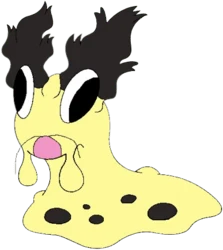 ) and across the millions of years until your planet's equivalent of the Paleolithic. Along the way you either hunt other creatures to extinction or befriend them or both until your lineage is king of the food chain. The stage ends when your brain becomes large enough to use cowtools
) and across the millions of years until your planet's equivalent of the Paleolithic. Along the way you either hunt other creatures to extinction or befriend them or both until your lineage is king of the food chain. The stage ends when your brain becomes large enough to use cowtools 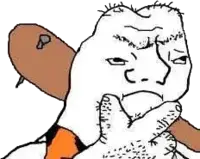 and start fires
and start fires 
Arguably what Spore is best remembered for, the creature stage finally gives you the full critter editor. In this stage the game also propagates your save file with user creations taken from the online Sporepedia. This process is automatic but you can also manually search and download any particular creations. In theory no two creature games should ever have the exact same planetary populations.
The coolest piece of tech that was in all of Spore was the procedural animation system. That was the system driving the character animation in the editors. It's what let you build a fully-rigged creature that had nine legs touching the ground and they would all walk naturally.
— Software Engineer Dan Moskowitz
The creature editor is full of different parts (mostly) inspired by different examples of life on Earth. What really makes it though is a unique procedural generation system that allows the game to try and realistically render the movement of any abomination you make, no matter what it ends up shaped like. Your mileage may vary of course, but it's an incredibly interesting system whether you're evolving your creature generation by generation in the stage or just making something from scratch.
Spore allows skilled players to create a variety of complex designs:
Of course there will also be shitposts:
But hey, what are you going to do? 
Hopefully in tribe game, what we walk away with is not only a play experience that has interesting rules, interesting mechanics, and interesting objectives in terms of how you unify the tribes, but also a feeling that this creature that I have evolved now looks advanced and intelligent… It's not only about being functional and compelling gameplay-wise; at the end of the day, it also needs to be fun to watch.
— Producer Matt Powers
Tribal
At this point the game develops strategic elements and you no longer control an individual. Many players took issue with this and these concerns were addressed in the later Galactic Adventures expansion pack.
In this stage you guide your increasingly advanced critters through a Hunter-gatherer existence and into the age of city building. Your creatures can no longer evolve and change their physiology but it's now possible to outfit them. Subsequent stages add even more outfitting options.
Tribal stage is real time strategy and plays kinda like Populous. You're required to find enough food to both feed your tribe and to employ it as currency when upgrading your encampment and available technology. At all times you stand in competition with other tribes and you must either eradicate them or ally with them or both until your species truly dominates the world. (Spore notably depicts a scenario in which multiple sapient beings evolve on the same world, though it's also possible for your species to be in competition with its earlier ancestors a la Homo Sapiens vs Homo Erectus)
Many players find tribal to be the most difficult stage though it does have its fans. Admittedly the changes between Cell/Creature and Tribal demonstrate one of the game's main criticisms. It shifts rather randomly between gameplay styles.
We wanted to make a simple strategy game, which can sometimes sound like an oxymoron — simple enough that it wasn't going to put off casual players but complex enough that actual g*mers would still find it interesting.
— Alex Hutchinson
Civilization
Originally there was going to be a city stage in which players managed their growing settlements not unlike SimCity.
It was cut early in development and so this stage plays like a simplified version of Sid Meier's Civilization though it notably jumps immediately into the age of motorized vehicles. You start with one city and all other cities emerge as independent nations. Your ultimate goal is to seize every city and unite your planet one way or the other. In the meantime you make money by taking control of spice geysers (Dune reference  ) There are a finite amount of these and of course you don't want other nations making more money than you.
) There are a finite amount of these and of course you don't want other nations making more money than you.
Civ stage drastically increases the available editors. The building editors allow four different building types: city hall, factory, entertainment, and house. There's simplified SimCity gameplay involved with creating the ideal city, but the actual editors allow you to make the buildings look however you want them to look. The vehicle editor allows you to create land, sea, and air vehicles that are in turn divided into three classes of military, religious, and economic. Parts used alter a vehicle's stats but there is still great aesthetic freedom available.
Also included is an expanded outfit editor and even a musical city anthem editor 
Your win goal is aggressive by nature so Civ stage expects you to get the ball rolling. Friendly herbivore behavior is replaced with religious conversion  Adaptable middle of the road gameplay becomes an economic playstyle in which you purchase cities out from under other nations
Adaptable middle of the road gameplay becomes an economic playstyle in which you purchase cities out from under other nations  Carnivore force simply becomes military conquest
Carnivore force simply becomes military conquest 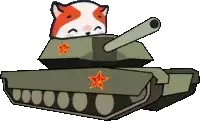 The AI here is genuinely against you and rival great powers will soon emerge as smaller nations get absorbed into their neighbors. Towards the end of the game you may see a Cold War showdown in which all other nations are conquered by your rival who then forces a world war upon you. Alternatively if you're friendly with the other main power they will automatically offer to merge their nation with yours. Either way the stage eventually railroads you into globohomo, an effective if simple gameplay/story integration that shows globalization as the endpoint of history
The AI here is genuinely against you and rival great powers will soon emerge as smaller nations get absorbed into their neighbors. Towards the end of the game you may see a Cold War showdown in which all other nations are conquered by your rival who then forces a world war upon you. Alternatively if you're friendly with the other main power they will automatically offer to merge their nation with yours. Either way the stage eventually railroads you into globohomo, an effective if simple gameplay/story integration that shows globalization as the endpoint of history 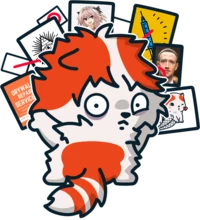
You can also nuke everyone 
Civilization stage was originally going to lead into a terraforming stage where you would go into space but be limited to just your solar system. You would learn to found colonies and terraform planets to make them habitable before finally inventing an FTL drive. This stage was depicted in the 2005 demo though it was eventually just merged into the tutorial of the next stage.
The space stage is a giant sandbox, interwoven with a light RPG, and it's HUGE. You start off on your home planet that you've been playing on possibly since cell game. You're given a space ship that you create and control. The ship is your avatar and will carry you across the stars, taking you on countless adventures.
— Producer Kip Katsarelis
Space
The final stage begins with your species launching a starship, the same ship you'll play as for the rest of the game. Space stage never truly ends and ultimately evolves into a god game sandbox. It's essentially the other half of Spore and abandons previous paradigms — the strategy aspects disappear but you don't go back to being a creature either. (Not until Galactic Adventures anyway)
The beginning is a grind in which you expand your interstellar empire while acquiring new technology and making money through spice trading  But unlike before you have to do everything yourself with the single spaceship. It's like if the Enterprise from Star Trek had to build the entire Federation by itself and all this happened in the course of one tv show. Along the way you'll make first contact with alien civilizations though the diplomacy here is a little r-slurred. It won't be long before you're vastly superior to any other empire anyway.
But unlike before you have to do everything yourself with the single spaceship. It's like if the Enterprise from Star Trek had to build the entire Federation by itself and all this happened in the course of one tv show. Along the way you'll make first contact with alien civilizations though the diplomacy here is a little r-slurred. It won't be long before you're vastly superior to any other empire anyway.
Space also serves as the culmination of the game's archetype system. Spore keeps track of how you won the previous stages and assigns red, green, and blue cards based on your playstyle.
Cell: Red for carnivore, green for herbivore, blue for omnivore
Creature: Red for wiping out other species, green for socializing with them, blue for an equal amount of both
Tribal: Red for wiping out other tribes, green for allying with them, blue for an equal amount of both
Civilization: Red for military conquest, green for religious conversion, blue for economic expansion
The cards can be mixed and matched throughout the game and you can enter space with less than four if you start at a later stage. Whatever combination you have determines the "philosophy" of your spacefaring empire.
In practice this system doesn't change much but it's an interesting concept. The idea is that your species' long history all comes together to determine what kind of sci-fi archetype you become.
Space stage is very open ended and doesn't offer a win condition. You're initially given tutorial quests and are eventually encouraged to explore the center of the galaxy by either destroying, allying with, or just outright avoiding the scripted Grox Empire. Otherwise it's a true sandbox.
The Grox look like this (artistic interpretation)
Space comes into its own once you unlock all the cowtools and get into the god game. From this point you're capable of doing whatever you want and can bring all editors into gameplay. The creature editor can be used to fill out the ecosystems of terraformed planets. Colonies can have all their vehicles and buildings personalized as you see fit. Heck you can take the time to give every last colony its own anthem. Planets themselves can be sculpted and recolored, and there are tens of thousands of them in the galaxy.
And all the while your Sporepedia will be downloading creations off the internet to pollinate the planets, ecosystems, and civilizations you discover. Space stage serves as a way to use every editor available and actually see the creations come to life on their own within the galactic sandbox.
I'd argue Spore shares conceptual dna with several later games like No Man's Sky, Starfield, and Stellaris. The genres vary, but these are all exploration focused space games that rely on procedural generation to simulate a sense of discovery. In theory these games all offer infinite content.
Of course Spore also suffers from the same weaknesses as the others. Sure the planets and critters change, but you will eventually reach a point where there isn't anything new to do. The procgen subgenre can be wide but very flat.
Some players love space stage while for others it demonstrates Spore's weaknesses. For what's it's worth, the sheer scale of it all is undeniably impressive, and those who did like Spore would also become fans of the aforementioned titles.
Editors and the Sporepedia
think of it as sharing the DNA template of a creature while the game, like a womb, builds the 'phenotypes' of the animal, which represent a few uploaded and downloaded freely and quickly from the Sporepedia online server. This allows users to asynchronously upload their creations and download other players' content, which enriches the experience of the game as more of its players progress in the game.
— Will Wright
The system that unifies the game and proliferates user content is the Sporepedia. In a game it tracks all content that appears in your save, allowing you to investigate, see the content creators, or ban something from appearing again. From the main menu it can also be used to browse and manually download creations and browse user profiles. Users can also create "sporecasts" that fans can subscribe to so their game downloads creations they've curated by theme.
To make all this possible, the Spore devs developed a new method of 3D model "compression" that allows all the data necessary for the game to load a creation into an editor to exist entirely within a png file no more than about 25kb or so. The Sporepedia arranges creations like a deck of cards with each card containing these pngs. Loaded normally, they look and handle just like basic graphic files. Yet those same files also generate content when used inside the game. To quote a gamefaqs page on the technical details
With a couple of simple DOS commands you can store any file under a header of any other kind of file so that it cane behave as both kinds of files. For example, you can make a .jpg file and actually store an entire program in it. So that when you look at it with an image viewer you just see the jpg part, but when you open it with another application you can see the entire program.
Let's look at how a spore creature is stored. Lets say you add an arm to a creature. Of course you need to know what kind of arm/leg it is. A simple arm just needs an 2 coordinate system telling it where it fits on the body, and I think an extra identification for the vertebrae it's attached to. Then it just needs 2 vectors to store the direction of both the upper and lower arm parts. Then it needs one additional value for each joint to indicate the 'fattness' of it. That's just 9 values it needs to save! And of course it also needs an identification value, making it 10.
Now look at a simple hand/foot part. Each creature has a limited amount of points where you can put a hand/foot, so that's probably 1 variable. It has 3 rotation points, and iirc hands/feet only have two morphing sliders, and an extra 'size' variable. That's only 9 variables, if you include identification.
Extra body parts are combination of these two methods. part id from the editor, part number on the creature, 3 rotation axes, a size, and 2 morphing sliders, vertebrae number or number of the part it's placed on, and location on the body or bodypart or whatever it's placed on. That's about 11 variables.
With conventional methods you would have to store millions of vectors just to save a model. One hand alone would take up more than 25kb. The only problem with this system is that you are limited by the prefab parts that the game offers you and that it doesn't offer you the complete freedom a regular game 3d artist would have to make models. But one look at the sporepedia will tell you that this 'limit' is far beyond what most people will ever need!
It's pretty impressive  kinda like those illusion porn games cards but used for a more noble purpose
kinda like those illusion porn games cards but used for a more noble purpose 
The editors are technical marvels in their own right, the creature editor in particular. While the editors for buildings and vehicles amount to sticking shapes together, the creature editor is based around attaching parts to a base vertebrae structure that forms the core of your creature. While it's a more limiting system, the trade off is that the game is equipped to render anything you can come up within its own physics engine complete with the system's best attempt at realistic animations for your creature; running, walking, idle, in combat, doing a mating dance, so on so forth.
—
@Patsy
The main design challenge of the creature editor was making something simple enough that people with no 3D modeling experience could quickly pick up and use that would also allow enough creative freedom to create millions upon millions of unique designs. The main solution was to base the system around metaballs and rigblocks.
The metaballs are 3D balls used for the main body and limbs of creatures. A standard 3D model has a mesh and is defined by a bunch of points in 3D space, connected by edges. In contrast the metaballs are what is called an “implicit surface” and are defined by a mathematical function, rather than points in space. The basic idea is that each metaball has a function associated with it that defines the surface of the metaball. When the metaball is alone this surface looks like a sphere, but when two metaballs get close, their functions get added together, which is why their two surfaces get merged into one.
As you stretch the limbs or spine of a creation, more metaballs get added to ensure a smooth, continuous surface. You can also shrink or grow individual metaballs to make parts of the creature fatter or thinner. Each limb part in Spore comes with a starting number but these can be deleted or more can effortlessly be added, so there's quite a bit of freedom in shaping your creature even when using defined parts.
Meanwhile, the more complicated pieces – hands, mouths, spikes, etc, were created using rigblocks. A rigblock is an individual, hand-crafted body-part that can be snapped onto your creature. Each rigblock has several degrees of freedom that let them be scaled, stretched, and transformed in pre-defined ways.
By combining these two systems, Spore struck a good balance of open-ended player creativity and pre-made artistic assets. The system also guarantees any created creature is compatible with the game's animation system and as mentioned above allows creatures to be stored using a much smaller amount of data than a traditional 3D model.
Conventional animation for the creatures was impossible since your creatures obviously don't exist until you create them. The game handles this entirely through procedural generation. Any given animation is broken into channels, example in a dancing animation one for arms and one for legs. The channels are also broken into queries for different sets of body points, example a creature with multiple pairs of arms. Maybe only the front pair will behave in a certain way, and only the highest pair will behave in a certain other way. Exactly how the animation system sets up is in reaction to the creature editor, example all legs may be animated in the same way if similar in length but some won't be synced if radically longer or shorter. There are also different potential animations that may be done based on variables, example a creature with arms and hands will use them to pick up an item on the ground but a creature without will use its mouth instead. A secondary animation system renders how other body parts not involved with movement will react, i.e. a tail wagging or extremities jiggling. Finally there's a special system for determining a creature's walking gait to ensure it's as "believable" as possible.
The editors for everything else perhaps aren't as technically impressive, these creations aren't subjected to in game physics and don't involve much procedural generation. They're still remarkable for the creativity one can get away with. Consider that the 2008 presidential candidates were all created in the spaceship editor as part of a promotion.
The History of Spore 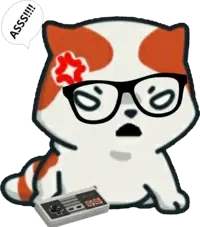
When I first saw the design document, back in 2003, I was like ‘good luck with that.' Part of the game was like Pac-Man, part of it was like Diablo, another part was like SimCity. I just thought that there was no way that this game was ever going to come out.
— Designer Guillaume Pierre
Though he's maybe not as well known these days compared to the noughties, in part because Spore was his last big game, it's important to know that Spore was massively hyped by simulation neurodivergents prior to release because it was billed as the ultimate game of veteran game designer Will Wright, founder of Maxis and the original creator of SimCity and The Sims.
Will Wright and Maxis
Will Wright is one of those old timey devs from those ancient days when individuals could release a hit game and effectively codify an entire genre. Originally inspired by board games back in the 80's, Wright set himself apart from other game devs by making games for the newer Commodore 64 rather than for Apple computers. His first game was ‘84's Raid on Bungeling Bay. Wright found he had more fun making maps for the game then actually playing it and wondered if he could build another game off the concept.
This next game, 1989's SimCity, would go down as a best selling classic and a codifier for the city simulation genre as we know it. The game and the series it spawned are still beloved and yearned for by neurodivergents everywhere. SimCity originally grew from Wright's love of map design and urban planning. You'll notice a recurring theme where many of Will Wright's games were inspired and designed around personal passions. It's a far cry from modern trend chasing design 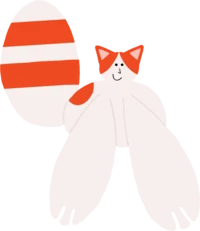
Indeed, SimCity wasn't initially considered to be a game at the time. Wright's love of level editors resulted him in designing such systems for their own sake with no game concept attached. He was also fascinated with developing and modeling cities as well as System Dynamics as developed by Jay Wright Forrester. Though Wright did eventually build a program that combined all these inspirations into the famous city simulation system we all know by now, none of his potential publishers thought it even counted as vidya. In an era where simple arcade games were still going strong, SimCity had no obvious win/loss condition nor belonged to any existing genre. The game was completed in ‘85 but couldn't be published for another four years.
In 1986 Wright met with Jeff Braun in what he called "the world's most important pizza party" 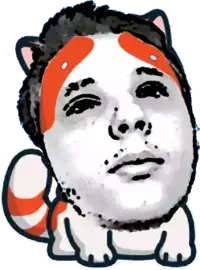 and together the two founded Maxis, a studio that could finally get SimCity published and widely released. As the super
and together the two founded Maxis, a studio that could finally get SimCity published and widely released. As the super 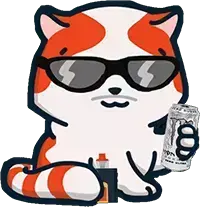 s among us know, the game was a massive hit and is essentially the archetype for the countless city builders that have come since.
s among us know, the game was a massive hit and is essentially the archetype for the countless city builders that have come since.
Maxis grew over the years and Wright was soon established as the pioneer of 90's simulation. He went on to develop several other games based on whatever he felt like doing at the moment; SimEarth inspired by Gaia Theory, SimAnt inspired by The Ants, SimLife based on simulating evolution and the development of ecosystems (kinda like the creature part of Spore in concept), and SimCity 2000 which expanded SimCity's concept further. Maps from that game could also be ported into SimCopter, a flight simulation game, and Streets of SimCity, a racing game that also served as Maxis' last independent title before being acquired by EA.
Wright's next major game is funny — it may be seen as EA's infamous cash cow nowadays, but the original game was still born from Wright's personal  passions same as the others. And while the series is currently famous for foid fans
passions same as the others. And while the series is currently famous for foid fans  it was still the brainchild of very moid-like simulation
it was still the brainchild of very moid-like simulation 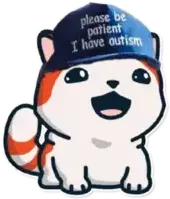
After losing his house in the Oakland firestorm of 1991  Wright came up with the idea of turning the experience of (re)building one's life into a game. The game evolved into a virtual dollhouse, like SimCity but smaller, and was directly inspired by Wright's building and furnishing of his new home. The game was originally conceived of as an architectural design game called Home Tactics, though Wright's idea changed when someone suggested the home should be rated on the quality-of-life experience by virtual homeowners. This led to the social aspects of the game — your Sim wasn't just building a home but would then live a life out of it while developing relationships with other Sims.
Wright came up with the idea of turning the experience of (re)building one's life into a game. The game evolved into a virtual dollhouse, like SimCity but smaller, and was directly inspired by Wright's building and furnishing of his new home. The game was originally conceived of as an architectural design game called Home Tactics, though Wright's idea changed when someone suggested the home should be rated on the quality-of-life experience by virtual homeowners. This led to the social aspects of the game — your Sim wasn't just building a home but would then live a life out of it while developing relationships with other Sims.
Maxis didn't think the idea could succeed as a game, so Wright actually got EA itself to publish the game directly. (EA had acquired Maxis in 1997) The game released to acclaim and surpassed Myst as the best selling computer game of the time. Really, the rest is history for this particular franchise and its innumerable money grabs expansions.
The incredible financial success of The Sims and its sequels made EA very favorable towards financing Wright's next idea for a game. At the time, the project was known as "SimEverything".
Spore's Development
Working on Spore was wonderful. A lot of industry nowadays is making sequels to previous games, so you take an existing game and just add plus one to it. Spore was so different that there wasn't a lot of models that we had for it. Will had this Powers of Ten vision from starting from a cell and zooming all the out to a galaxy level. It was really like ‘what?' It wasn't like any game before it, so the whole team was super excited about it.
— Designer Stone Librande
According to Wright, the conceptual inspiration for Spore was Drake's Equation — which deals with the possibility of intelligent life in the Milky Way (and is even referenced directly by the game) — and Powers of Ten — a film that shows the scale of things from the entire observable universe to subatomic particles. Wright was fascinated with the idea of a creator system that could easily be used by children as a fun educational tool that would also inspire them into various fields of science. He didn't want a game where people felt like a Luke Skywalker or Frodo Baggins, but rather a creation oriented one where the player felt like George Lucas or Tolkien.
I want this to be more on the motivational side than the education side. I really want to spark people's interest in these subjects. People still tell me they went into, you know, civil engineering because of SimCity. It wasn't that SimCity taught them how to build a city, but it got them interested in how fascinating the subject is. That motivation is far more powerful than just trying to pour facts into their head. So, if nothing else I'd like people to come out, sit back, look up at the stars and think a little bit deeper about what a galaxy is.
— Will Wright
The earliest work on Spore began back in 2000. Development originally focused around prototypes for concepts Wright was interested in. Indeed, these earliest years weren't really based on game development at all. Wright wanted to see what he could do and model and get away with, and many of these early prototypes featured systems that didn't make it into the final game at all.
Will's a huge astronomy buff and the rest of the team had some of the most diverse set of outside interest that I had ever seen in a games team. People didn't just play video games for their hobbies and work. We had people into biology and physics, we had an ex-nurse -- people just came in with a wad of ideas and since this was a game about everything, everything was in scope. So we had a lot of different prototypes floating around including a very sophisticated particle simulation of oceans to Drake's equation about how life propagates across galaxies. There was just a lot of stuff like that. The gameplay was always the tricky part. You can have a lot of independently interesting situations but you need to tie them together.
— Artist Kate Compton
The earliest version of Spore was inspired by SETI and was based around an explorable galaxy. You could say the space stage came first.
The earliest evolution of it had to do with the SETI Project. The original concept was sort of a toy galaxy you could fly around and explore. As we thought about, it became apparent that evolution was a very important component. Some of the very first prototypes involved how you would move around and visualize the galaxy. And then on procedurally generated creatures. Could we actually generate creatures through evolution so there was a vast variety of creatures rather than just the 20 or 30 fixed things that games typically include.
— Will Wright
To make this possible Wright wanted to push the boundaries of how procedural generation could be used in games. While more common now 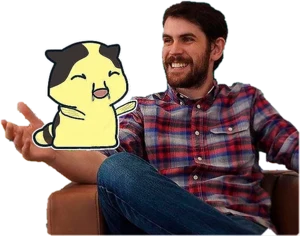 this technology had never been used so extensively in a video game before. Yet without it the scope of Spore would have been impossible.
this technology had never been used so extensively in a video game before. Yet without it the scope of Spore would have been impossible.
I played a lot of space and strategy games, but one thing that always disappointed me in space games was that you're presented with a galaxy with maybe 100 worlds. It was never vast like a real galaxy. Even the Spore galaxy is a tiny percentage of a real galaxy, but you get the sense it's immense, with countless worlds to explore. And I'd never seen an evolutionary game where, again, there was a vast set of possible creatures you could come across and that could convey the diversity of real biology. So we started thinking about procedural solutions. Very early on we wanted to give players a really cool design editor so they could design a wide variety of creatures. A lot of our early prototypes explored whether we could do procedurally generated animations and textures and could we build an editor that was easy to use?
We researched what little had been done in computer science around things like procedural animation, which was mainly around humanoids, procedurally generating human animations. But almost nobody was generating animations where you didn't know what the shape of the creature was. We had to basically invent our own kind of computer science for that.
Many prototypes were made in the early years just to see how an idea might play out and be used in the game. Apparently Maxis made between 30 and 40 prototypes, many programmed by individuals who were given leeway to work on whatever they wanted. Spore's design team was given incredible initial freedom to just work on whatever.
Early Spore prototypes and design concepts focused on simulating the movement and evolution of alien creatures, fluids, the birth of stars, galaxies, nebulae, and the spread of intelligent and non-intelligent life in media as small as a bread crumb, and as large as a galaxy. There was a galactic potter's wheel, where you could try your hand at forming a stable spiral armed galaxy. A blind watchmaker interface allowed you to guide the evolution of novel life forms. You could sculpt huge piles of gas into stars that were just right for life.
— Designer Chaim Gingold
It's worth noting that many of these prototypes are still available on Spore's website if you wanted to mess around with them.
It took a while for the Spore team to decide on what kind of game Spore would actually be. Eventually it worked out players would progress through the various stages sequentially and experience the editors accordingly. Each stage had different design teams though and it wasn't easy to bring everything together into one product.
Of course, this isn't quite the Spore everyone knows. There are two explanations for this, one is philosophical, and the other commercial. First, the commercial explanation. The Sims, Will's previous game (The Sims Online was in production during Spore's initial concept development), was one of the best selling games ever, and one of the most lucrative franchises in Electronic Art's stable. The Sims was popular precisely because of how easily people could connect to it: you played with human beings living in suburban doll houses. Spore, by contrast, looked like it would become an awe inspiring existential crisis in a box, a toy universe so vast that it would take your breath away, not to mention your sense of self, time, and space. An acid trip on a compact disc, guaranteed to explode your brain, much like Kubrik's film 2001: A Space Odyssey had blown a much younger Will Wright's mind. Who was the target audience for Spore? Was it bigger than the market for SimEarth and SimLife? What changes would we have to make to appeal to players of The Sims?
The second, philosophical explanation, was also the design challenge: What would players identify and empathize with in Spore? Where were their characters? What would players do? Would anyone want to play a complicated game/art/science experiment? The entire universe is a vast, very heavy thing, and it wasn't clear that people would be able to pick it up, and if they did, that it wouldn't burn a hole through their hand, or head, for that matter.
— Chaim Gingold
Inevitably Spore's different stages simply ended up drawing from existing games i.e. Pac-Man for Cell or Sid Meier's Civilization for Civilization. Soren Johnson from 2007's Civilization IV was even brought in to help with the Civ stage. Though this system is often criticized these days as a bunch of mini-games stuck together, the devs weren't sure how else to make Spore into an actual video game rather than just a series of different creators and random game mechanics created from prototypes.
We had a really strong vision, but we didn't have strong game design behind the vision. Like what is the player actually doing from a g*mer point of view. If you take a look at the creature editor outside of the rest of the game, it's just wonderful, it makes you smile. Even today it's such a fun toy and it's easy to see why it's compelling. But once you start think about game systems like what the goal is, how will we make them feel like they're leveling up, what's the skill progression, and things that are traditionally associated with games. A lot of that was just missing.
— Stone Librande
Wright himself described it as the difference between a game and a toy. The editors and potential player creativity represent the "toy" of Spore — something you just play around with. Games however require set goals and pass/fail conditions, and so the various disjoined mini-games are what makes it so the various editors and the content pollination system of the Sporepedia actually have a video game to be part of. In the end, this divide could be seen in Spore's reception. A lot of people complain that Spore's gameplay is simple and repetitive, and they're not necessarily wrong.
In contrast, the people who don't mind just messing around with the editors usually have a higher opinion of the game and continue to be fans of Spore even today.
There was also a now infamous divide in the Spore team between those who wanted scientific accuracy and realism and those who wanted cute and cartoony designs. The final game tried to strike a compromise between the two that not all players — especially the ones that had seen the 2005 demo shown further below — were fans of. Apparently there were two main reasons why Spore wasn't quite as "scientific" as originally envisioned.
Part of it was technical limitations. Impressive as the procgen animation system could be, it wasn't perfect enough to handle realistic movement. Creatures tend to bounce around and jiggle as they move, and it was felt that the effect was less jarring with simpler, cartoony creatures. One of the designers felt it would be uncanny — if Spore's animation system was applied to a realistic tiger for example, you'd feel like you could hear the creatures tendons tearing and joints popping as it moved. The animation limitations were thought comedic on simpler creatures but disturbing and immersion breaking with more details in the equation.
There was also a push to have Spore's development mirror how The Sims had been made. Wright's original idea for a detailed and neurospicy house builder was made more social and foid-brained under advice from the other developers and designers. This included Chris Trottier who was also present as a designer for Spore. The end result was a best selling game. Wright was encouraged to do the same with Spore so that the game wasn't too "geeky" and would reach a wide audience. In other words The Sims spelled the end of Maxis' neurodivergent simulation career and Spore's development solidified that decision.
The animators were also fond of the cartoony style since it led to less creature parts for their animation system to have to keep track of. It was said Spore's development reached a point where many of the programmers were brainstorming for more but all the animators and art designers started begging for less. Many of the scientific ideas tested in the aforementioned prototypes had to be dropped lest the game might've never been completed.
EA certainly encouraged the cute and cartoony "wide appeal" of the final product because they wanted another cash cow franchise more than anything. Indeed, EA seemed to see Spore as a second The Sims and treated it as such. I'll detail more on this later in the post.
Spore was first revealed and demonstrated at the 2005 Games Developers Conference with a now legendary demo. Dunno how many dramatards will actually watch that whole video above, but just skimming through it shows off the growing scale of the game as well as the differences in art style between early development and the final product. The reaction also shows how fascinated people were with the idea. Notice how the crowd goes wild when the ship zooms out into the solar system and then again when it zooms out into the star cluster 
Years later and to this day some fans unhappy with the finished game would pine for the 2005 version of Spore, but it should be noted this demo isn't a completed game. It was made from spliced footage of different prototypes that didn't connect to each other yet 
Spore was officially unveiled at E3 2005. A more detailed look was presented at E3 2006, and E3 2007 featured yet another showing with a closer appearance to the final game. While the game's content pollination system was a thing from very early on, RL developments in these later years led to a redesign to make it more like "Web 2.0" social media. Wright was inspired by things like Facebook and Twitter that had come out in the meantime and wanted the Sporepedia to also have a community sharing aspect to it.
By July 2007, the game was a complete, fully featured alpha build undergoing closed play testing. It was originally meant to release that year but was ultimately delayed several times into 2008. Wired News even once gave Spore second place in an annual list of vaporware games (first place went to Duke Nukem Forever 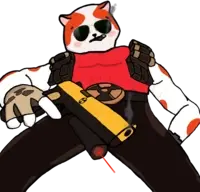 ) It's funny because even if we start Spore's development at year 2000 it's not that severe compared to modern game development cycles
) It's funny because even if we start Spore's development at year 2000 it's not that severe compared to modern game development cycles 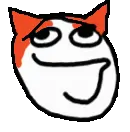
The Spore Creature Creator debuted in early 2008, released by itself as a demo of sorts for the game
At the 2008 DICE Summit, Electronic Arts CEO John Ricitiello stated, "It's probably the greatest creative risk maybe going on in the game industry today...I believe it's going to be one of the greatest franchises in our industry and will rival World of Warcraft or The Sims or Rock Band. It's going to be right up there."
Release and Reception
Spore is overhated. I didn't follow the hype but it's a cute game.
—
@lain
Spore was released to generally positive reception, though as you can tell from some of the rDrama quotes not all of the hypists were left satisfied. Spore's initial reception can be divided between the typical 7/10 — IGN journo opinions and the reaction of the simulation ‘tists that had been following the game since 2005. Contemporary g*mer opinions on Spore can also be divided between those who feel it couldn't live up to its concept and those who appreciate the game for what it is.
Spore received initial acclaim from gaming publications. (And these guys were slightly more prestigious in 2008 compared to today) However it was controversial for the DRM it launched with, SecuROM. This system was announced after the originally planned system met opposition from the public, as it would have required authentication every ten days.  Additionally, EA released the game under a policy by which the product key of an individual copy of the game would only be authenticated on up to three computers; however, some users ran afoul of the limitations as the software would consider even a slight change of hardware to constitute a different computer, resulting in all authorizations being used up by those who often upgrade their computer. In response to customer complaints, this limit was raised to five computers.
Additionally, EA released the game under a policy by which the product key of an individual copy of the game would only be authenticated on up to three computers; however, some users ran afoul of the limitations as the software would consider even a slight change of hardware to constitute a different computer, resulting in all authorizations being used up by those who often upgrade their computer. In response to customer complaints, this limit was raised to five computers. 
Digital versions of the game sold on platforms like Steam and Origin would eventually do away with this.
Spore sold over two million copies within three weeks of its release, and while I haven't seen any updated sales figures since, it did remain on best selling PC games lists for some time.
I watched that Spore GDC demo so many times
But Spore didn't resonate with the hardcore simulation fanbase. Many disliked the cute Sims esque influences and the actual gameplay was felt to be shallow and repetitive. Spore was perhaps one of the first to develop a still all too common issue — wide as an ocean, but deep as a puddle 
Still, the game did have its fans. I feel like people were more likely to enjoy it if they didn't follow the hype as much and/or if the editors by themselves were enough content to satisfy them.
The Spore Franchise 
The expression I'd like to use is that it's kind of like a dandelion or the City of Atlantis. Atlantis has all the greatest scientist in the world, mythologically speaking, building pyramids, lasers, or alien technology. It sinks and everyone leaves on boats and each boat heads to a different continent where they continue to build. I think that's what happened with Spore and why it was important that Spore stopped and that everyone went all over the place. We've got Maxoids from Spore working on Oculus, Tilt Brush, Riot, Valve, on dozens of indie projects. There are some of us teaching, like the dandelion can't make more dandelions until it scatters its seeds to the wind. That happened with Spore.
— Kate Compton
EA had high hopes for Spore and for some reason got it in their heads that it would grow into a massive multimedia franchise brand. Spore's release was followed by a number of spin-offs that really had nothing to do with the simulation genre or the fanbase actually buying the game. They were particularly interested in marketing towards kids, maybe because of that cute aesthetic they'd ultimately gone with. It could be that the financial success of the Sims inspired all this since that's obviously grown into a huge franchise, but then again EA tried to milk Spore even harder than that. To my knowledge they never randomly made a Sims platformer, nor were there ever plans for a Sims movie.
And yes, there were initial plans for a Spore movie of… some kind. It would have been produced by Blue Sky Studios and distributed by 20th Century Fox.
Spore was also supposed to come to the Xbox 360 and PlayStation 3. The achievement hunter in me wishes that actually happened lmao 
Spin Offs
Spore's release was followed by a number of other games only tangentially related to the original. Origins was a phone app with a simpler version of the cell stage and nothing else.
Spore Creatures was the first of two Nintendo DS games intended for 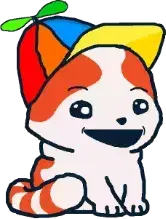 It's sort of like the creature stage mixed with Nintendogs and features a creature the player can alter in order to complete quests and fight bad guys. While the online Sporepedia of the PC game doesn't exist here, this game is notable among DS titles in featuring a multiplayer that didn't require Nintendo's weird friend codes system
It's sort of like the creature stage mixed with Nintendogs and features a creature the player can alter in order to complete quests and fight bad guys. While the online Sporepedia of the PC game doesn't exist here, this game is notable among DS titles in featuring a multiplayer that didn't require Nintendo's weird friend codes system 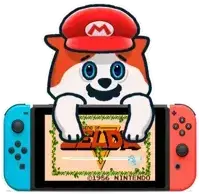
Spore Hero Arena was the second and focused more on action and combat. It was probably developed in conjunction with the following game. It's divided into missions featuring a variety of battle modes and also features a multiplayer component.
Spore Hero is an action adventure platformer with the gimmick that you get to make your protagonist. The game plays like a bog standard example of its genre and is unfortunately linear despite featuring the creature creator — for example you unlock certain parts that need to be put on your creature to progress through obstacles, regardless of whether you want them or not. The game also suffers from having to use the friggin Wii Remote to navigate an interface meant for mouse and keyboard.
I actually played this game and I remember I made a scorpion thing, not because I really wanted to, but because it sort of… ended up that way 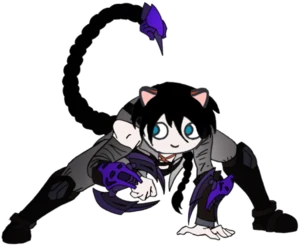
Darkspore is extra weird because it's a Diablo like game that has very little in common with Spore but was made by Maxis. It also came out in 2011 at the very tail end of the "brand's" relevance.
Darkspore has you controlling preset heroes with the customization now being that you collect upgrades for them. The editors are actually built from the same engine as Spore and there is a mod that adds Darkspore parts to the main game. There's no real interactivity between the two however. The game also required a constant connection to the server to even play single player.
Which means the game became unplayable when the servers shut down in 2016.
This was the first game Maxis made after Will Wright left and, well, they don't make anything besides The Sims content anymore. Honestly I wonder why this wasn't its own separate IP.
There's also a lot of miscellaneous Spore content that's hard to keep track of.
Galactic Adventures
am i misremembering or did someone make schindlers list in spore galactic adventures?
spore galactic adventures had a giga neurodivergent modding/fancontent community so i believe it
—
@Molnet and
@drama_enthusiast
Spore received only three pieces of post launch content, with Galactic Adventures being the only true expansion pack.
Creepy and Cute was simply a parts back for the creature editor. Pretty neat but nothing major.
The Spore Bots Part Pack was interesting because it was part of a promotion with Dr Pepper — you received the code for the content under the caps of specially marked Dr Pepper bottles 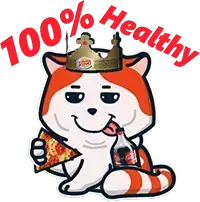 The pack was controversial because not everyone wanted to buy soda, plus it was exclusive to the US, plus it was found that the pack literally was Patch 1.06 so you weren't getting that content at all without the code lmao
The pack was controversial because not everyone wanted to buy soda, plus it was exclusive to the US, plus it was found that the pack literally was Patch 1.06 so you weren't getting that content at all without the code lmao
The parts were eventually made into a patch anyone can download.
The one true expansion Spore did receive was actually amazing and did a lot to improve the game and address complaints. Released in 2009 and under development since Spore's launch, Galactic Adventures was made in response to criticisms of Spore's shallow gameplay and space stage and in response offers the following,
— A common complaint of space stage was that you could never get out of your vehicle and explore planets on foot. Though it's only within the context of adventures, GA gives you control of a playable captain and lets you visit player made levels and worlds. In doing so it restores the ability to control an individual beyond creature stage. It also adds a full planet editor beyond the sculpting cowtools available to players.
— Space stage was also criticized for getting old after a while. GA adds adventures to experience and an rpg system for ranking up your captain. Upgrading your character not only improves your adventure experience but also unlocks archetype rewards plus currency that improves the rest of your empire. Space really becomes two stages in one.
— GA just gives you more to do in general. Adventures can also be played from the main menu and the Sporepedia means you should never run out of new ones to play. Adventures are made in a new editor that also retroactively increases the importance of previous editors. All of this can be accessed independently of space stage too if you don't feel like playing a long campaign.
Galactic Adventures was an idea that we came up with when we were looking at all the content that was getting created in Spore and really looking back and giving players more opportunities to use that content. As of tonight, I think we're up to over 67 million pieces of content. So the idea that came is how do we give players' stuff meaningful creativity with that content? Yes, it is part level editor, so any content that you find in the Spore universe, you can use in your own missions and adventures. Plus, any of those missions that you create or the community creates are available for Space game, so we're giving you a new powerful editor plus a whole bunch of additional gameplay in space. The new missions kick in about master batch two, so about an hour into Space game, you're going to start to get these "beam down to the planet" adventures, which are completely new.
— Producer Morgan Roarty
It's hard to articulate the kind of freedom GA gives you since it basically turns Spore itself into a video game maker and is surprisingly complex despite the editor limitations. Adventures are playable missions/miniature games created by users and they can really be anything so long as the engine can handle it. You can fill an adventure with standard Spore content like fighting or socializing, or have microcosms or other genres; platformers, action adventures, simple strategy. Some adventures are made like interactive Sporecasts where the player shows off their content such that others can take their captains and interact with it all. The editor allows you to set AI behavior for npcs and give unusual properties to anything in the game — example you could insert music files and have items play those songs when interacted with. In the vein of a dedicated game creator like RPGMaker, people have done a lot with Galactic Adventures and the community remains alive today.
Adventures also have a social aspect to them. User created ones aren't just able to be downloaded, but can be freely edited too. You could take someone's adventure and add your own content to it or just remove something you didn't like about it  You can also "reverse engineer" more complex ones to learn some tips for you own. Some are memetic like "Add Your Captain" missions where one simply edits in their own protagonist like signing a card and then reuploads for the next guy. The Maxis adventures don't just provide out of the box content. They're set up to be easily edited as tutorials of sorts for how different kinds of adventures are made. Maxis also encouraged Sporecasts subscriptions by making semi-hidden adventures of theirs only available in that way.
You can also "reverse engineer" more complex ones to learn some tips for you own. Some are memetic like "Add Your Captain" missions where one simply edits in their own protagonist like signing a card and then reuploads for the next guy. The Maxis adventures don't just provide out of the box content. They're set up to be easily edited as tutorials of sorts for how different kinds of adventures are made. Maxis also encouraged Sporecasts subscriptions by making semi-hidden adventures of theirs only available in that way.
Some of the later Maxis adventures were made in partnership with the Adult Swim Robot Chicken writers. No, really 
I think this is a very interesting solution to what seemed to be Spore's biggest criticism, the gameplay. The creation part of it was the most fun to me and Maxis seemed to realize this and decided to allow users to create the gameplay. So far, it appears extremely deep and allows for an enormous amount of customization to almost any aspect you can imagine. I really like the fact that I have the choice of either spending the time to create a game myself or I can dive straight in and play games other people have created.
— From a Galactic Adventures demonstration at the Georgia Institute of Technology
Galactic Adventures makes me sad in retrospect  The expansion was a massive step in the right direction and gave new life to Spore while fixing many of the issues people had with the original product. If more expansions like GA had followed, the game could have had a contemporary turn around not unlike No Man's Sky.
The expansion was a massive step in the right direction and gave new life to Spore while fixing many of the issues people had with the original product. If more expansions like GA had followed, the game could have had a contemporary turn around not unlike No Man's Sky.
Alas, that kind of business model just wasn't a thing at the time. EA was eager for Sims money and it wasn't going to fund major free updates. Back then expansion packs sold separately, often as physical media one would drive to a game store to buy 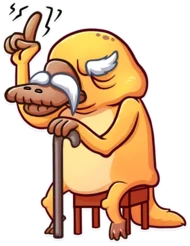 and an expansion's financial success was measured in number of copies sold. Imagine trying to explain to 2008 era EA devs that a game like NMS, despite being disappointing at launch, eventually became huge and financially successful thanks to free content that incentivized people to go buy/keep playing the original even years later.
and an expansion's financial success was measured in number of copies sold. Imagine trying to explain to 2008 era EA devs that a game like NMS, despite being disappointing at launch, eventually became huge and financially successful thanks to free content that incentivized people to go buy/keep playing the original even years later.
Maybe Spore really was ahead of its time.
We're now at a maximum learning where the fans are going to be steering the franchise as much as we will - they have their hands on the steering wheel too. We're listening to criticisms of parts of the game, we're looking at parts that were unexpected successes and we're going to go in other directions with Spore.
Part of it is stuff we wish we had done, but it's more what we see the fans wanting us to do. We're going to probably add more depth to different areas of the game - and we're certainly already doing that with the Galactic Adventures expansion pack - and we're also taking output from the cowtools in different directions, so you can take your creatures you made in the creature creator and bring them into different experiences.
— Will Wright
Wright left Maxis in 2009, but for a small moment he was working on post-launch Spore and giving attention to the weaker parts of the game. Who knows what we could have gotten if more expansion packs had followed 
In Retrospect 
About fifteen years have passed since Spore's release, and while the game was disappointing to many and received little post launch support, it also has its fair share of fans and remains played if niche to this day. In particular, younger players who didn't know about the game before 2008 and who went in with no expectations tend to have a higher opinion of Spore. There are also plenty of people who love the editors and don't mind coming back to them. Spore retains a dedicated fanbase to this day so the content creation and sharing experience is still strong.
Though it's not easy to login to on steam, the Sporepedia still works and can still be accessed with some know how. You can also manually upload and download creations from the Spore website.
For what it's worth, the creature creator demo remains available as a free download for any dramanauts who want to try it out.
This effortpost is dedicated to its patron, @lain






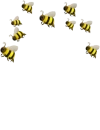
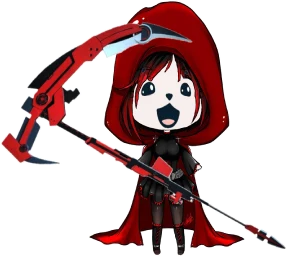 🤝
🤝 
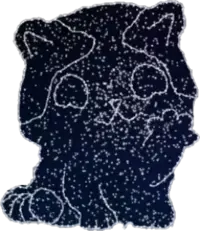 An analysis of Will Wright's Spore — The most ambitious simulation game ever released
An analysis of Will Wright's Spore — The most ambitious simulation game ever released














































 the video game
the video game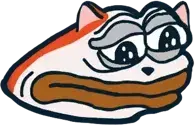















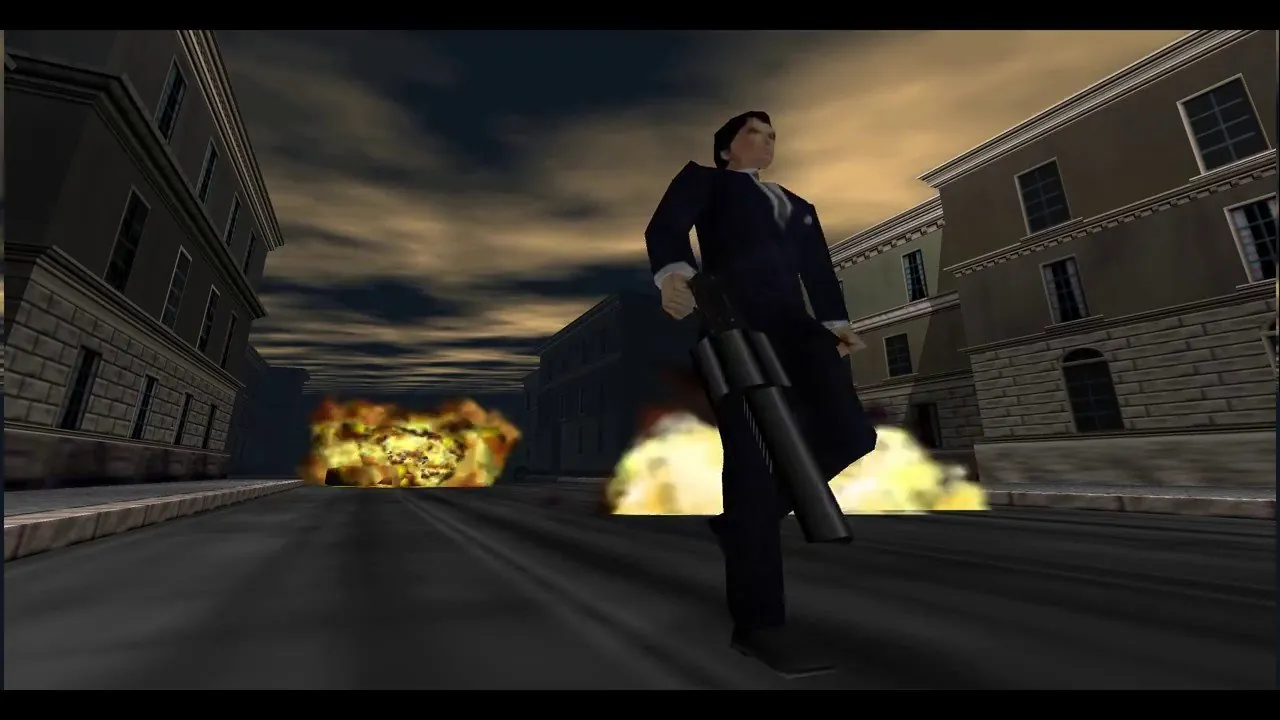
Jump in the discussion.
No email address required.
Spore has personality for sure but not too much depth
I would prefer to play a deeper evolution game (rework the herbivore)
or a deeper space-age game like Stellaris but RPG
Jump in the discussion.
No email address required.
Well, there's a neurodivergent open-source remake of the cell stage, if that's the kind of thing you're into.
https://store.steampowered.com/app/1779200/Thrive/
Jump in the discussion.
No email address required.
This is exactly the kind of thing I'm into.
Jump in the discussion.
No email address required.
More options
Context
incredible
Jump in the discussion.
No email address required.
More options
Context
More options
Context
More options
Context